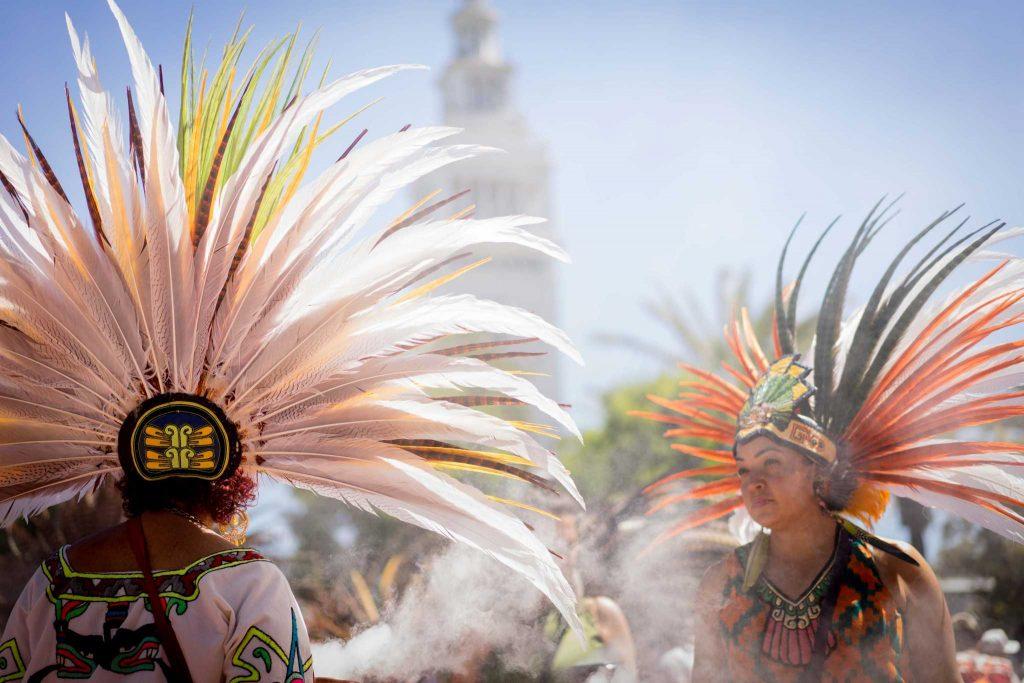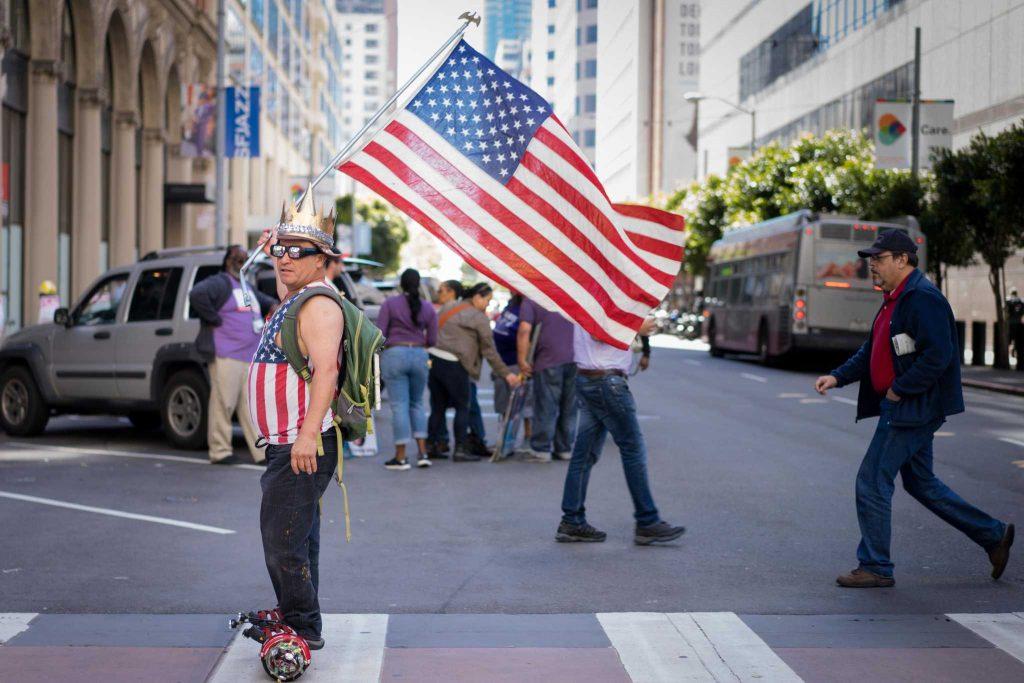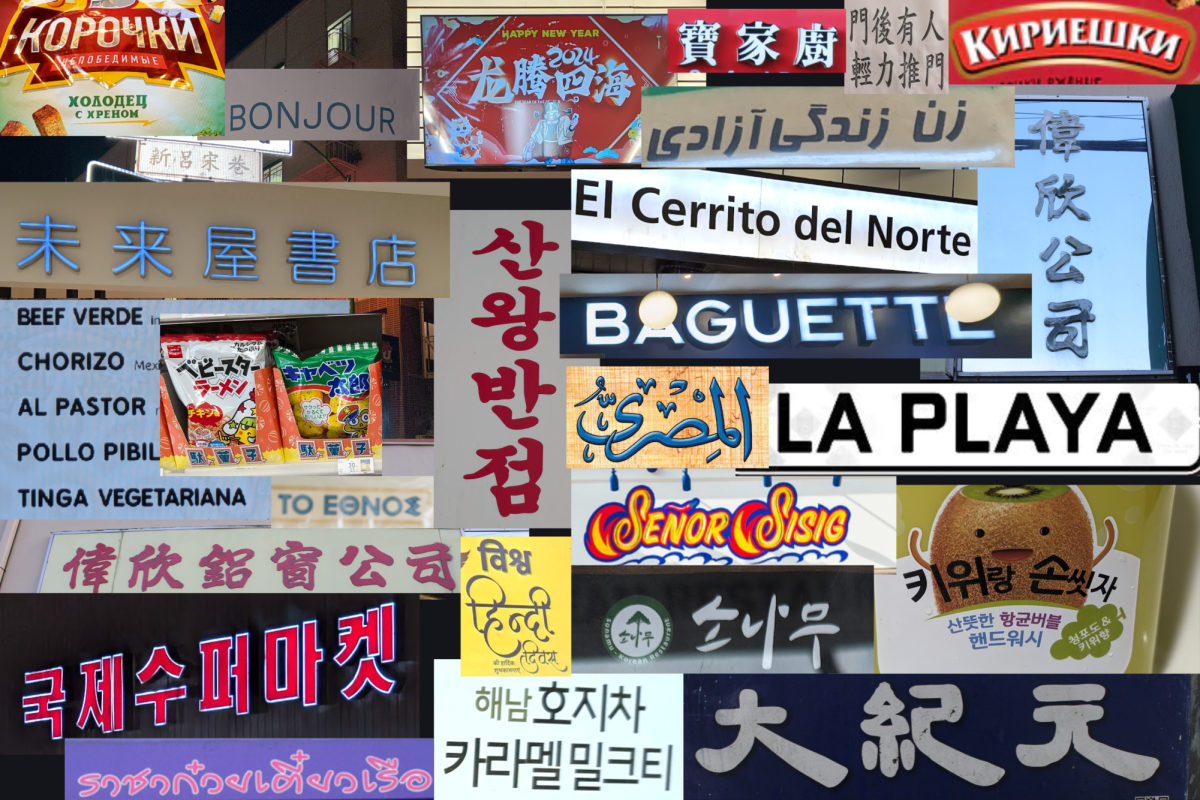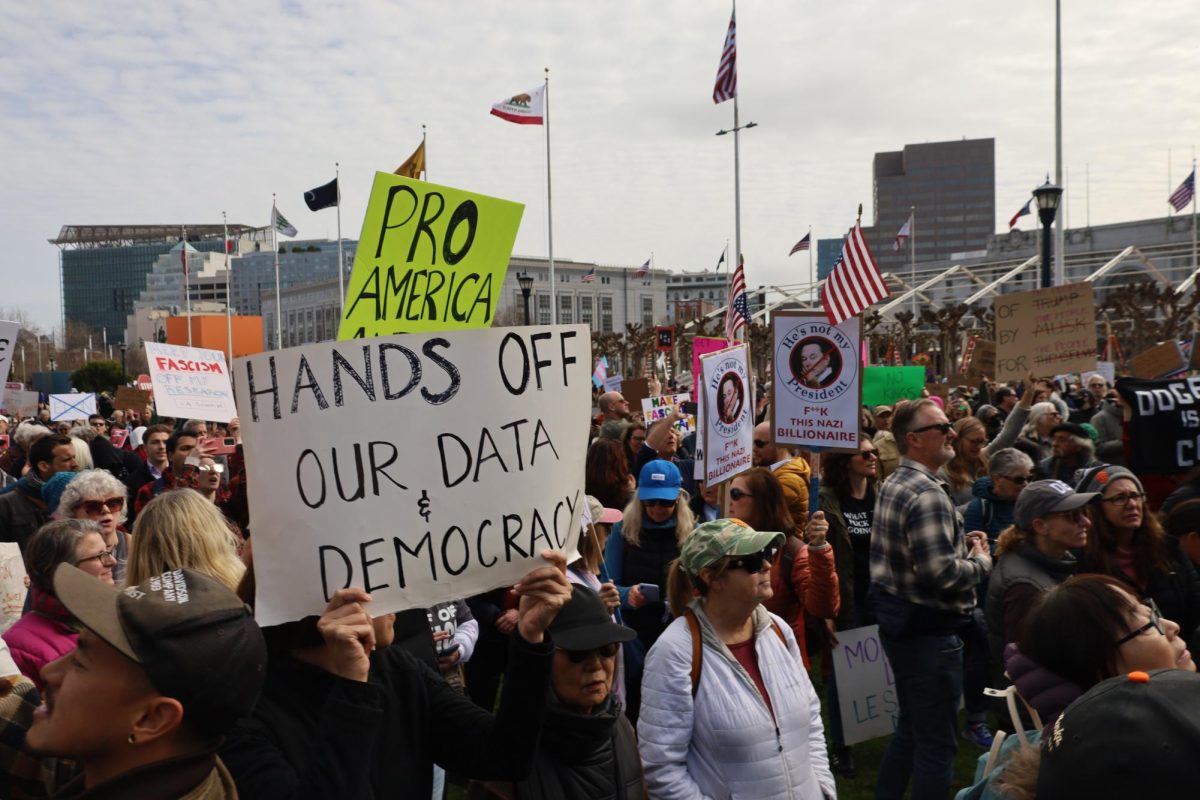SF State students and staff troubled by the Trump administration’s attacks on immigrant workers’ rights participated in San Francisco’s May Day march to Civic Center.
May Day, also known as International Worker’s Day, spawned protests focusing on immigrants’ rights throughout the Bay Area, the country and the world.
Hundreds of participants at the San Francisco May Day march demanded more protection for immigrants and criticized Trump’s treatment of laborers.
Trump’s relationship with immigrants has faced criticism due to his insistence on a southern border wall and his attempt to ban travel from Muslim-majority countries in January.
“I think it’s really important for people to let Trump know he didn’t win a majority, he wasn’t elected by the people and we will resist,” said Sheila Tully, California Faculty Association chapter president for San Francisco and lecturer at SF State.
Alexander Acosta, Trump’s pick for U.S. secretary of labor, was sworn in on April 28 and has openly expressed his desire to replace workers with machines to Business Insider, causing unrest throughout the labor community.
The march included union workers, immigrants, SF State students and faculty and political officials. Mayor Ed Lee and District 6 Supervisor Jane Kim marched side-by-side with other participants, holding up a sign that read “Together We Are Strong”.
Other signs at the protests included sayings such as “No Ban, No Wall” and “Workers’ Power,” and many participants chanted “move, Trump, get out the way,” as they marched down Market Street to Civic Center Plaza.
Tully said that she participated because of a number of immigrant students, faculty, and staff that exist at the University and because of Trump’s anti-union and anti-education ideologies.
“(Trump) hasn’t put any policies in place as of yet,” Tully said. “But we know he’s vehemently anti-union, he’s anti-public education and he’s anti-immigrant and those are all attacks on SF State.”
Sandra Rojo, a 19-year-old SF State student, said she has been going to marches and protests like San Francisco’s May Day march since she was six years old because her parents were activists.
“I’m here marching because I come from a family of immigrants,” Rojo said. “For us, it’s a very important thing to come and raise our voice and give support.”
Jonathan Jimenez, a third-year Latino/a studies major, said he came to the march because of the systematic exploitation of immigrant communities. He also said that he believed the march was important because it would tell the Trump administration that not only do immigrants live in the U.S., they are not leaving.
“Knowing that both of my parents are immigrants from El Salvador, it’s especially important to me that everyone has the ability to migrate here regardless of their documentation and be able to work and make a living out here,” Jimenez said.











